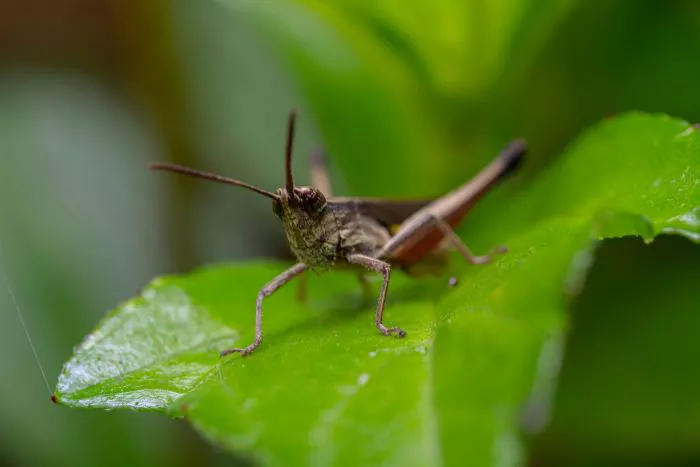Roses are beloved for their beauty and fragrance, but they can be susceptible to various pests. One of the most common pests affecting rose bushes is the rose slug. These small larvae, which belong to the sawfly family, can cause significant damage to rose leaves, leading to unsightly holes and a weakened plant. Fortunately, there are effective home remedies to manage rose slugs. This article will explore practical strategies to protect your roses from these pests while maintaining a healthy garden.
Understanding Rose Slugs
Rose slugs are the larvae of sawflies, which are not true slugs but rather caterpillar-like pests. They typically emerge in spring and can be found on rose bushes, feeding on the leaves. Their feeding habits can result in skeletonized leaves, where only the leaf veins remain. If left untreated, rose slugs can weaken the plant and reduce its ability to produce flowers.
Identifying rose slugs is relatively easy. They are green or yellowish-green and can be about half an inch long. They tend to curl up when disturbed, making them somewhat camouflaged against the foliage. Understanding their life cycle and behavior is crucial for effective control.
Home Remedies for Controlling Rose Slugs
There are several home remedies that you can use to combat rose slugs effectively. These methods are environmentally friendly and can be implemented without the need for harsh chemicals.
Handpicking
One of the simplest and most effective methods for controlling rose slugs is handpicking. Regularly inspect your rose bushes for signs of slugs. If you find them, remove them by hand and dispose of them. This method is labor-intensive but can be very effective, especially for smaller infestations.
Neem Oil
Neem oil is a natural pesticide derived from the seeds of the neem tree. It disrupts the life cycle of many pests, including rose slugs. To use neem oil, mix it with water according to the instructions on the product label. Spray the mixture on the affected leaves, ensuring thorough coverage. Neem oil not only helps control rose slugs but also has antifungal properties, making it a versatile addition to your pest management routine.
Insecticidal Soap
Insecticidal soap is another effective home remedy for rose slugs. It works by suffocating the pests and disrupting their cell membranes. To make your own insecticidal soap, mix one to two tablespoons of mild liquid soap (such as Castile soap) with a quart of water. Spray the solution directly onto the slugs and the affected leaves. Be sure to apply it in the early morning or late afternoon to avoid harming beneficial insects.
Garlic Spray
Garlic is known for its pest-repelling properties. To create a garlic spray, blend a few cloves of garlic with water and let the mixture steep overnight. Strain the liquid and add a few drops of liquid soap. Spray this solution on your rose bushes, focusing on the undersides of the leaves where slugs may hide. The strong scent of garlic can deter rose slugs and other pests.
Pepper Spray
Similar to garlic, hot pepper can also act as a natural deterrent. To make a pepper spray, mix one tablespoon of crushed red pepper or cayenne pepper with a quart of water. Allow the mixture to steep for several hours, then strain it and add a few drops of soap. Spray this solution on your rose bushes to repel rose slugs and other unwanted insects.
Diatomaceous Earth
Diatomaceous earth is a natural powder made from the fossilized remains of tiny aquatic organisms called diatoms. It works by damaging the exoskeletons of insects, leading to dehydration. To use diatomaceous earth, lightly dust it around the base of your rose bushes and on the leaves. Be cautious not to apply it when it is windy, as it can be blown away. Reapply after rain or watering to maintain its effectiveness.
Companion Planting
Companion planting involves growing certain plants together to deter pests. Some plants, such as marigolds and garlic, can repel rose slugs and other pests. Consider planting these companion plants near your roses to create a natural barrier against infestations.
Encouraging Beneficial Insects
Beneficial insects, such as ladybugs and lacewings, can help control rose slug populations. These insects feed on pests, including rose slugs, and can be attracted to your garden by planting flowers like yarrow, dill, and fennel. By creating a welcoming environment for beneficial insects, you can reduce the need for chemical interventions.
Maintaining Plant Health
Healthy plants are less susceptible to pest damage. Ensure your roses receive adequate water, sunlight, and nutrients. Regularly prune dead or damaged leaves to promote airflow and reduce the likelihood of infestations. Mulching around the base of your plants can help retain moisture and suppress weeds, creating a healthier environment for your roses.
Regular Monitoring
Regularly monitoring your rose bushes is essential for early detection of rose slugs. Inspect the leaves weekly, especially during the spring and early summer when slugs are most active. Early intervention can prevent a small problem from becoming a large infestation.
Conclusion
Managing rose slugs can be challenging, but with the right home remedies and practices, you can protect your roses and maintain their beauty. Handpicking, neem oil, insecticidal soap, garlic spray, and other natural methods provide effective solutions without resorting to harsh chemicals. By understanding the life cycle of rose slugs and implementing preventive measures, you can enjoy healthy, vibrant roses in your garden. Regular monitoring and maintaining plant health will further enhance your success in keeping these pests at bay. With patience and diligence, you can ensure your roses thrive despite the challenges posed by rose slugs.


